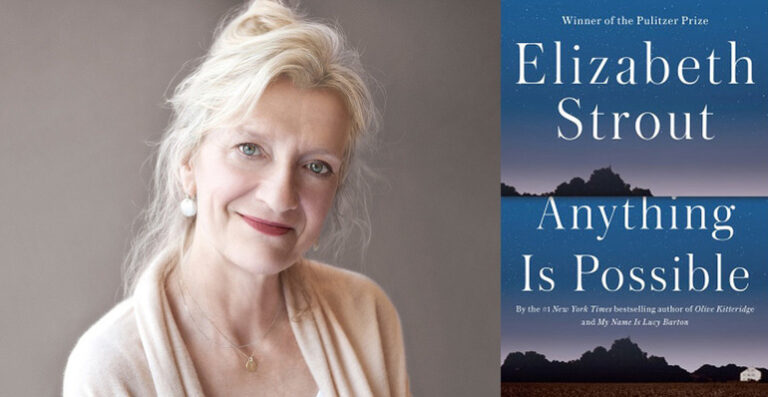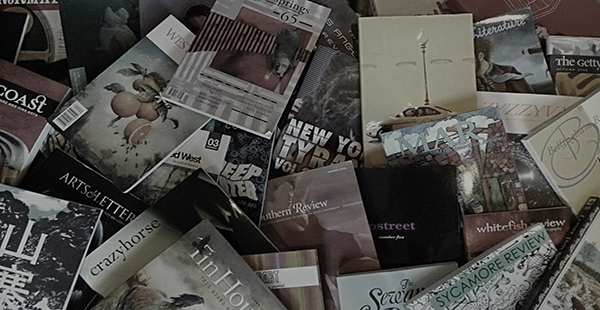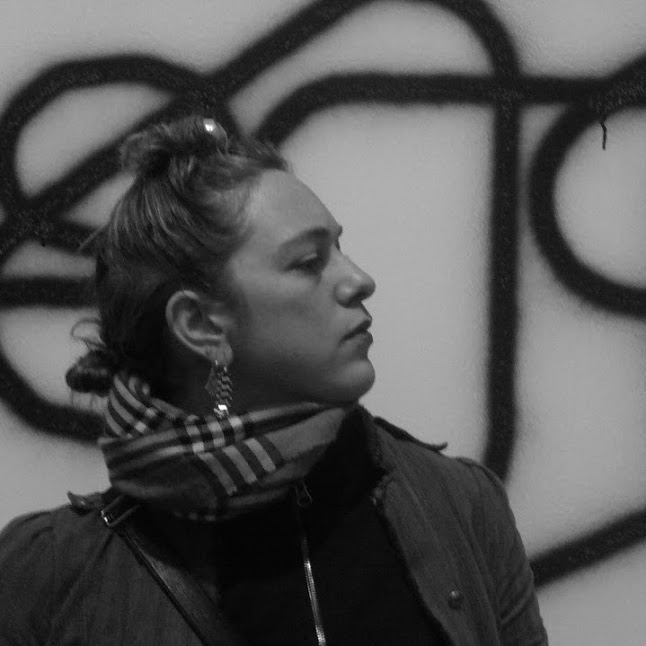Literary Boroughs #48: Berlin, Germany
The Literary Boroughs series will explore little-known and well-known literary communities across the country and world and show that while literary culture can exist online without regard to geographic location, it also continues to thrive locally. Posts are by no means exhaustive and we encourage our readers to contribute in the comment section. The series will run on our blog from May 2012 until AWP13 in Boston. Please enjoy the forty-eighth post on Berlin, Germany, by Amanda DeMarco. —Andrea Martucci, Ploughshares Managing Editor
Located on the River Spree in northeastern Germany, Berlin is home to 3.5 million people. Since much of it was destroyed in World War II, the city’s architecture is a melange of mostly 20th-century structures, and it is certainly not among the most picturesque European cities. About 13 percent of Berlin’s inhabitants are of non-German nationality, with 25 percent having non-German heritage. Immigration (often short-term) from America has also exploded in recent years, and comparisons to 90s-Prague are common. Gentrification and rising rents are a major concern, and Americans with foreign funding (who can therefore afford to pay amounts those earning typically low Berlin incomes cannot) are increasingly the object of criticism.
Germans love to read and German publishing is more robust and better structured than that in the U.S. In recent years, more publishing houses have moved to Berlin, and the city is now truly the capital of German literary life. Though you can certainly get by in Berlin only speaking English, you’re definitely missing out on the most vibrant parts of Berlin book culture if you don’t know what’s happening in German.
What the city is known for/what makes it unique
Brandenburg Gate. The Wall, its falling. Berghain. Long, dark winters. “Poor but sexy.” Flea markets. Currywurst.
Some resident writers:
Thomas Brussig, Ulrike Draesner, Jenny Erpenbeck, Durs Grünbein, Katharina Hacker, Iris Hanika, Ida Hattemer-Higgins, Christian Hawkey, Felicitas Hoppe, Daniel Kehlmann, Esther Kinsky, Ursula Krechel, Katja Lange-Müller, Sibylle Lewitscharoff, Angelika Meier, Herta Müller, Thomas Pletzinger, Steffen Popp, Judith Schalansky, Bernhard Schlink, Kathrin Schmidt, Ingo Schulze, Donna Stonecipher, Uwe Timm, Uljana Wolf.
Where to learn:
Berlin universities often offer courses in English, but German universities are not as service-oriented as American ones, so don’t expect much in the way of advising. If you have a home institution in the U.S., see if they can clear up some of the bureaucratic stuff for you. There’s also ECLA, a very small English-language liberal arts college in northern Berlin associated with Bard College. If you’re looking to learn German, Volkshochschulen (state-run continuing-education organizations) offer affordable, decent quality classes in various neighborhoods. The Reader is a professional editing service that also organizes English-language writing courses.
If you only speak English and are hoping to learn about German book culture, translators’ blogs can give you an intimate peek into Berlin literary life: Katy Derbyshire’s Love German Books, or the Transfiction agency’s blog, for example. New Books in German presents leading German titles in English each season. Sadly, Berlin’s leading English-language culture magazine, ExBerliner, nearly entirely neglects all things literary. Luckily, culture websites Slow Travel Berlin and Sugarhigh regularly include book-related events and topics. Berlin Stories for NPR also provides regular cultural insights in the city.
Where to find reading material:
A library card costs ten euros in Berlin, and will be well worth it, though the English selections at various branch libraries often leave something to be desired.
Wherever you live in Berlin, you’ll likely have a well-run independent bookstore within convenient walking distance. Most have at least a small English section. Germany has a fixed price system (Preisbindung) for new books, which means they cost the same everywhere and you won’t save money buying them online. Though you’ll likely end up building a relationship with your nearest bookseller, a few outstanding German-language shops include:
Büchertisch (Kreuzberg) offers a huge selection of used books at two welcoming locations. At Ebert und Weber (Kreuzberg), you’ll find books from small German publishers, well-selected, hard-to-find elsewhere, and competently presented. Hundt Hammer Stein (Prenzlauer Berg) is a great all-round shop that manages to capture the spirit of the moment without following fads. Ocelot (Prenzlauer Berg) is big, beautiful, and modern. They host major events.
English-language bookstores are less common, but the successful ones are true centers of literary life here: Dialogue (Kreuzberg) is a small boutique-shop near Kottbusser Tor with a well-selected and up-to-date stock of new books. Dialogue is also responsible for some of Berlin’s best English-language literary events. St. George’s (Prenzlauer Berg) has a wonderful selection of new and used books, and they host a lively reading series especially rich in formally innovative poetry. Peaquod (Neukölln) stocks affordable used books in English, French, Italian, Spanish, German, Dutch, Swedish, Turkish, Polish, Norwegian, Romanian and Danish. Dussmann (Mitte) is an enormous German bookstore that also has a large department dedicated to English books. Motto (Kreuzberg) stocks a vast collection of independent/alternative/artist publications—come when you have plenty of time to browse. Another Country (Kreuzberg) has a great science-fiction selection as well as a unique lending program: buy a book, read it, return it, and you’ll get all but 1.50€ back. Shakespeare and Sons (Prenzlauer Berg) is the new-ish Berlin branch of the famed Prague bookstore. Good selection, lots of graphic novels, and a decent French selection.
Where to get published:
Sand is Berlin’s best-known English-language literary magazine. If you’re a translator, try sending short pieces to the online journals Asymptote or No Man’s Land. Sharmaine Lovegrove, owner of Dialogue Bookshop, launched Berlin’s first English-language literary agency this year — maybe Dialogue will be the first step on your novel’s path to publication. Broken Dimanche Press has declared 2013 “year of the BDP avant-garde,” so get in touch if that’s your thing. Though it oscillates between inertia and activity, it’s worthwhile to keep an eye on Kombinat, a collective for independent publishers in Berlin. Small alternative ventures in a wide variety of languages bloom in Berlin’s low-cost high-culture soil. Keep an eye out for the Kombinat stand at flea markets.
If you’re writing in German, some of Germany’s best literary magazines are not based in Berlin, eg. Edit or Bella Triste.Berlin-based publishing houses include Suhrkamp Verlag, Aufbau Verlag, kookbooks.
Where to write:
In your relatively-inexpensive-despite-all-the-gentrification-talk apartment, of course! When you get tired of being alone, your local branch library might be a bit unwelcoming. Try the StaBi, Grimm-Zentrum, or Amerika-Gedenk-Bibliothek for a more peaceful writing space. Though a few spots in Berlin are thought of as “writers’ cafes” (eg. Café Hilde or St. Gaudy Cafe in Prenzlauer Berg), Berlin is bursting with peaceful cafes you can stake out as your own — just don’t expect a free refill for your coffee or tea. If you have the extra money, co-working spaces are popular in Berlin. During Berlin’s brief paradisiacal summer, try any of the Volksparks, Tiergarten, Tempelhofer Park, Böcklerpark along the Landwehrkanal, or any of the other parks dotting this low-density city.
Events/Festivals:
Berlin is a great city for literary events. Be sure to get on various bookstore e-mail lists. The Internationales Literaturfestival Berlin (ILB) offers two weeks of German and English events throughout the city every fall. The program is incredibly high quality, addressing important global political topics along with international literary themes—definitely not to be missed. The Poetry Hearings Festival presents an eclectic mixture of Berlin poetic talent one weekend each year. The American Academy brings major literary and scholarly voices to Berlin for residencies each season. Be sure to keep an eye on their program.
Literarisches Colloquium Berlin presents major voices (in German) in its beautiful Wannsee villa. Literaturwerkstatt Berlin will help keep you up to date on worthwhile (mostly in German, often with a young/hip/international flavor) literary events around the city, such as the important Open Mike competition (which, incidentally, bears little resemblance to an open mic in the American sense).
The Literary List is an email newsletter for English-language book events in Berlin.Fiona Mizani has organized the list since 2006, and it now has about 550 subscribers. To sign up, email Fiona at fiona_mclellan [at] yahoo [dot] com.
Amanda DeMarco is a writer, translator, and editor who has lived in Berlin since 2009. She edits Readux, a website focused on Berlin literary life.


